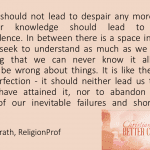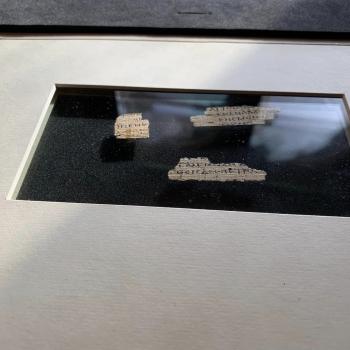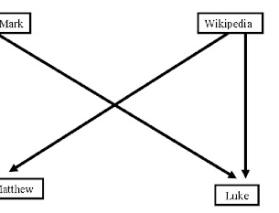I was reminded a while back (actually, looking at when I first wrote a draft of this post, it was a couple of years ago, when watching the movie Carmel, which includes Josephus’ account of the Jewish war and other quotes from his writings) that Josephus claimed that his work was translated from Hebrew or Aramaic. It seems to me that that claim is worth thinking about in relation to the claim that there was a Hebrew Gospel of Matthew, which to most scholars seems at odds with the Gospel of Matthew in Greek that we have, which does not show any telltale signs of having been translated. Of course, good translations very often don’t show those signs. And Josephus’ work certainly seems every bit as much to be a composition in Greek rather than a translation into that language from another. I can’t off the top of my head think of any study that systematically looks at both of these works in terms of claims that they are translations from earlier versions in a Semitic language. Does anyone know of such studies? If there aren’t any, this might be a topic worth pursuing for some current or future graduate student.
See also Bart Ehrman’s response to a question from a reader of his blog about this very same question, and my review of James Edwards’ book on Hebrew Matthew (which in his case looks more like a Hebrew Luke, as I recall). I would also note that Dennis Macdonald’s recent work on the Synoptic Problem attempts to tackle this issue directly, identifying Q with the Hebrew work by Matthew that early Christians were aware of, and treating Matthew in Greek as a work mistaken for a “translation” of that work precisely because so much of Q was incorporated into it. I’m not always persuaded by his treatment of the Gospels in mimetic terms, but I think that the very possibility of a solution to the Synoptic Problem that is not simply rehashing well-worn options, and which seeks to posit the existence only of sources that early Christians mention, deserves very serious consideration indeed. And of course, George Howard’s work on the possibility that Shem Tov’s Hebrew Gospel of Matthew known in later times might be that lost work, or bear some relationship to it, must also be taken into consideration.


















